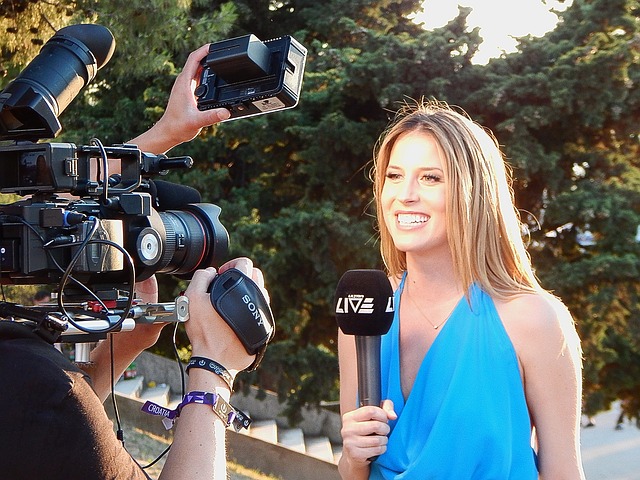Broadcast journalism is a profession that requires knowledge, hard work, and commitment. It is not a profession for the faint-hearted, as it requires ample time for preparation and presentation. Like other media, the advent of digital platforms and the Internet has led the field to evolve quickly in a short period of time, requiring aspiring broadcast journalists to master many new skills than their more traditional predecessors ever needed.
Here are just a few tips to get on the right track and set yourself up to become a successful multimedia journalist (MMJ) in the 21st century:
Getting the right education
A proper education doesn’t just get you certifications that will boost your resume and get you in the door, but gives you well-rounded training in a field that is constantly changing. NYFA’s Broadcast Journalism school has working, experienced faculty members who keep up with the current industry landscape and can share that experience with their students.
As part of the New York Film Academy, NYFA’s Broadcast Journalism school also applies a large focus on the technical aspects of digital broadcast journalism — producing and shooting video, editing, on-camera presentation — skills that multimedia journalists will need to learn in order to be successful in a digital landscape.

Getting industry experience
Maneuvering interview rooms with little or no experience will prove unfruitful in broadcast journalism. Getting the relevant experience is thus a fundamental aspect of a career in broadcast journalism.“A graduate may intern for a company to get the necessary experience,” explains Steve Doane, Career Coach at ConfidentWriters.
Additionally, entry-level jobs as production assistants or post-production assistants can be key to working your way up the ladder into more significant positions. Learning the practical skills needed for multimedia journalism, such as those mentioned above as taught by NYFA, are a solid way toward earning those entry-level jobs.
For MMJs, it is also essential to have some experience with social media. In an increasingly networked modern era, mastering the use of social media sites as Facebook, Twitter, and Instagram are great assets for news anchors, and thus part of your training at NYFA’s broadcast journalism school.
Networking
Creating a network is a key step in journalism. Budding journalists should join such professional organizations such as Society of Professional Journalists, which also provides tons of helpful resources for broadcast journalists, by broadcast journalists. Additionally, keeping close ties to the community of journalists as a whole will help you stay up-to-date on the latest trends, as well as career advancement opportunities.
Learning From the Best
NYFA’s Broadcast Journalism school not only utilizes working professionals as faculty members, but often has high-profile guest speakers come and speak to students directly about their careers in the industry. Learning directly from those who have come before you and made similar journeys can be immensely beneficial.
Watch as many lectures, interviews, and videos with industry professionals and leaders on YouTube and other platforms as you can, absorbing their insight and advice and avoiding pitfalls they’ve come to learn the hard way.
Seeing these speakers in person, however, affords even more benefits, as you may have the opportunity to ask them questions directly. Past guest speakers at NYFA’s Broadcast Journalism school include Rachel Maddow (MSNBC), J.P. Olsen (VICE NEWS TONIGHT), and Sharon Hoffman (Entertainment Tonight.)

Stay focused
Broadcast journalism is competitive and tough. However, with focus, determination, and commitment, a graduate can go very far in this industry. Set goals and work toward them. Such focus can potentially see a journalist through from an entry-level position to a reputable job with an established news or media company, such as NYFA Broadcast Journalism alumni George Colli (WTNH), Lea Gabrielle (Fox News Channel). Grace Shao (China Global Television Network), and Nicolle Cross (ABC, Austin, TX affiliate).
Apply Now for a Broadcast Journalism Program
Written by Paul Bates
Paul Bates is a writer and storyteller at BeeStudent and Essay Task educational platforms and a contributor at HuffPost and Buzzfeed. Also, Paul is an online tutor at Paper–Research service.